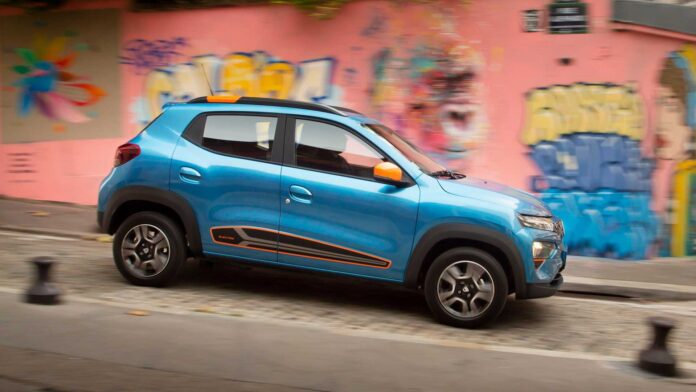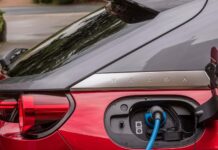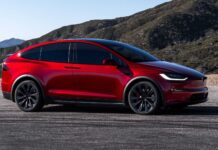[ad_1]
The European automotive market struggles more and more with the ongoing semiconductor shortage and the lack of new cars at dealerships.
Passenger car registrations in Europe (26 European markets, monitored by JATO Dynamics) decreased by 30% year-over-year to 790,652 in October. The year-to date result of 9.85 million is now only 2.6% above the 2020 level.
Meanwhile, the plug-in electric cars are selling well. A total of 181,300 new plug-ins were registered last month, which is enough for 22.9% of the market (a new record, but probably only slightly above September, which was also estimated at 23%). For reference, in 2019, plug-ins had a share of barely 4%!
“During the month, a total of 181,300 units of BEV and PHEV were registered, accounting for 22.9% of total market share – a new monthly record. While the EV segment continues its upward trajectory, diesel vehicles are struggling to gain traction in Europe, with market share dropping to just 19%.”

JATO Dynamics notes that the shortages directly affect the market as manufacturers are switching to produce and sell the most profitable models (usually large SUVs) and plug-ins (important also from the standpoint of the emission requirements).
Felipe Munoz, Global Analyst at JATO Dynamics, commented:
“Carmakers are being forced to prioritise their best-selling segments, meaning that the few available semiconductors are being used solely to produce SUV and EVs.”
Not all manufacturers are affected by the shortage equally and it appears that the Volkswagen Group is hit pretty hard (down 42% year-over-year and outsold by Stellantis).
“Last month, Volkswagen recorded a 42% decline in volume, with double-digit drops in all countries except Ireland. Its compact and midsize cars were the most severely affected segments.”
“According to JATO Dynamics’ data, last month was the second time, this century, that Volkswagen Group fell out of the leadership position for monthly registrations ranking by OEM. This marks the first time since its formation earlier this year, that Stellantis has outsold the German manufacturer.”
Now let’s take a look at the top models in the BEV and PHEV categories. October was not as spectacular month as some of the other months, but some of the results are very interesting.
First of all, the Renault ZOE – one of the oldest electric cars on the market – was #1 with 6,438 units, despite a significant 35% drop year-over-year.
The ZOE’s result was enough to outsell the Volkswagen ID.3, which at 5,539 was down 47% year-over-year, compared to its first full month on the market. Volkswagen has some big supply issues as its main MEB-EV plant in Zwickau, as well as a smaller Dresden plant, have been halted for an entire week.
Meanwhile, the Dacia Spring – Made-in-China – is selling like hot cakes. It was third in October with 5,277 units and 40,000 units total were ordered. It seems that Europe is hungry for entry-level EVs, as affordable as possible.
In October, once again the Skoda Enyaq iV (5,166) was above Volkswagen ID.4 (4,847). The Hyundai Ioniq 5 with 3,286 entered the top 10 for the first time, at #9.
Among plug-in hybrids, the Ford Kuga PHEV (Ford Escape PHEV in the U.S.) remains #1, but the Peugeot 3008 PHEV was very close this time.

[ad_2]
Source link













